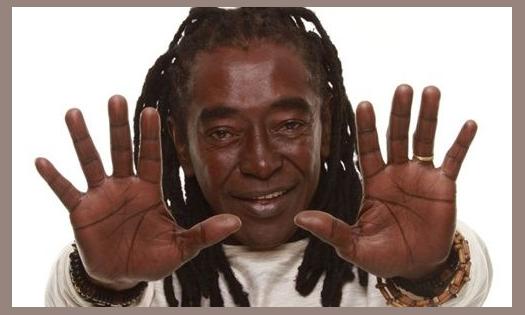 Macau
Macau
Macau: The Enchanting Melodies of "Olhos Coloridos"
Amidst the vibrant tapestry of Brazilian music, Macau emerged as a captivating force, their melodies etching themselves into the hearts of listeners worldwide. Known for their soulful vocals and infectious rhythms, the band's rise to fame was not without its challenges and controversies.
Origins and Formation
The seeds of Macau were sown in the coastal city of Salvador, Brazil. In 1998, vocalist Preta Gil, daughter of beloved samba legend Gilberto Gil, joined forces with guitarist Rodrigo Amarante, bassist Pedro Baby, and drummer Domenico Lancellotti. Sharing a passion for blending traditional Brazilian rhythms with contemporary sounds, they embarked on their musical journey.
Early Challenges
Their path was not without obstacles. Preta Gil's unconventional appearance and outspoken nature drew criticism from some corners of the music industry, who questioned her credibility as a vocalist. Undeterred, the band remained steadfast in their vision, determined to break down societal barriers.
Breakthrough with "Olhos Coloridos"
In 2003, Macau released their debut album, which featured the iconic single "Olhos Coloridos" (Colored Eyes). The song became an instant sensation, captivating audiences with its infectious melody and heartfelt lyrics. "Olhos Coloridos" soared to the top of the charts, not only in Brazil but also in several other countries, establishing Macau as a global phenomenon.
Discography and Evolution
Macau's subsequent albums, "Nação Zumbi" (2005) and "Ruído dos Outros" (2007), showcased their versatility and musical evolution. They experimented with various genres, including funk, rock, and reggae, while maintaining their signature blend of Brazilian rhythms.
Members and Collaborations
Over the years, Macau's lineup has undergone changes. Preta Gil remained the driving force as the lead vocalist, while Rodrigo Amarante and Pedro Baby left the band to pursue solo projects. However, Macau continued to collaborate with renowned musicians, including David Byrne, Caetano Veloso, and Chico Buarque, enriching their sound and expanding their artistic horizons.
Controversies and Impact
Macau has not shied away from tackling social issues through their music. Their lyrics often address themes of racial and gender equality, sparking debates and challenging societal norms. Their stance has drawn both praise and criticism, but it has also cemented their reputation as artists with a conscience.
Legacy and Influence
Macau's impact on Brazilian music is undeniable. Their blend of traditional rhythms with contemporary sounds has inspired a new generation of musicians and expanded the boundaries of Brazilian music. Their songs continue to resonate with audiences worldwide, touching hearts and promoting acceptance and diversity.
Conclusion
Macau's journey has been marked by challenges, controversies, and artistic triumphs. Through their captivating melodies, heartfelt lyrics, and unwavering commitment to social causes, they have become a beloved force in the Brazilian music scene. As they continue to evolve and inspire, Macau's legacy will undoubtedly endure, leaving an indelible mark on the hearts of music lovers for generations to come.
Amidst the vibrant tapestry of Brazilian music, Macau emerged as a captivating force, their melodies etching themselves into the hearts of listeners worldwide. Known for their soulful vocals and infectious rhythms, the band's rise to fame was not without its challenges and controversies.
Origins and Formation
The seeds of Macau were sown in the coastal city of Salvador, Brazil. In 1998, vocalist Preta Gil, daughter of beloved samba legend Gilberto Gil, joined forces with guitarist Rodrigo Amarante, bassist Pedro Baby, and drummer Domenico Lancellotti. Sharing a passion for blending traditional Brazilian rhythms with contemporary sounds, they embarked on their musical journey.
Early Challenges
Their path was not without obstacles. Preta Gil's unconventional appearance and outspoken nature drew criticism from some corners of the music industry, who questioned her credibility as a vocalist. Undeterred, the band remained steadfast in their vision, determined to break down societal barriers.
Breakthrough with "Olhos Coloridos"
In 2003, Macau released their debut album, which featured the iconic single "Olhos Coloridos" (Colored Eyes). The song became an instant sensation, captivating audiences with its infectious melody and heartfelt lyrics. "Olhos Coloridos" soared to the top of the charts, not only in Brazil but also in several other countries, establishing Macau as a global phenomenon.
Discography and Evolution
Macau's subsequent albums, "Nação Zumbi" (2005) and "Ruído dos Outros" (2007), showcased their versatility and musical evolution. They experimented with various genres, including funk, rock, and reggae, while maintaining their signature blend of Brazilian rhythms.
Members and Collaborations
Over the years, Macau's lineup has undergone changes. Preta Gil remained the driving force as the lead vocalist, while Rodrigo Amarante and Pedro Baby left the band to pursue solo projects. However, Macau continued to collaborate with renowned musicians, including David Byrne, Caetano Veloso, and Chico Buarque, enriching their sound and expanding their artistic horizons.
Controversies and Impact
Macau has not shied away from tackling social issues through their music. Their lyrics often address themes of racial and gender equality, sparking debates and challenging societal norms. Their stance has drawn both praise and criticism, but it has also cemented their reputation as artists with a conscience.
Legacy and Influence
Macau's impact on Brazilian music is undeniable. Their blend of traditional rhythms with contemporary sounds has inspired a new generation of musicians and expanded the boundaries of Brazilian music. Their songs continue to resonate with audiences worldwide, touching hearts and promoting acceptance and diversity.
Conclusion
Macau's journey has been marked by challenges, controversies, and artistic triumphs. Through their captivating melodies, heartfelt lyrics, and unwavering commitment to social causes, they have become a beloved force in the Brazilian music scene. As they continue to evolve and inspire, Macau's legacy will undoubtedly endure, leaving an indelible mark on the hearts of music lovers for generations to come.